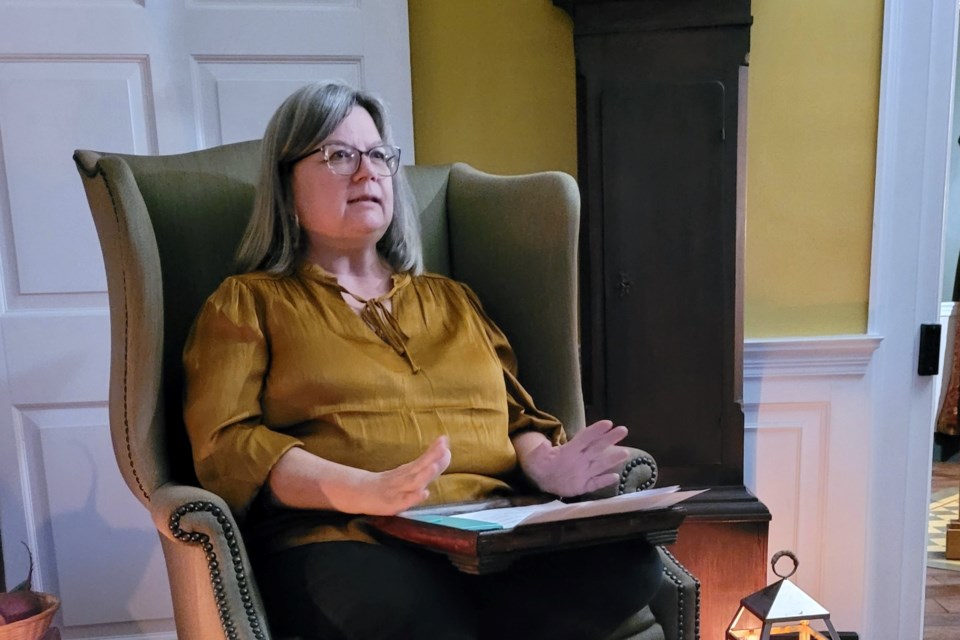No, this is not a trick.
According to Barry Popik, an American etymologist from New York who has been studying language for decades, the Sault is the first place to reference ‘tricks or treats’ in print anywhere in the world.
The citation comes from an edition of The Sault Daily Star on November 1, 1917, which detailed a brief story about local youngsters who were out celebrating Halloween the previous evening.
“Tricks or treats you could hear the gangs call out,” the article read.
Fascinated with language, words, and writing, Popik has logged over 32,000 entries investigating word origins, from American city nicknames like “The Windy City” and “The Big Apple” to Canadian familiarities like poutine and Nanaimo bars.
“With social media, it’s a little easier nowadays to find the exact dates of word origins,” he says. “Compared to the library research I’d do in the 90s, it’s gotten easier.”
Popik has been tracking down the birthplace of Halloween’s most popular phrase for some time now.
Back in 2007, he found a citation from 1927 in Lethbridge, Alberta that mentioned ‘trick or treat,’ and he shared it with the American Dialect Society.
That was the first known printed reference to the phrase for well over a decade until last year when he discovered the Edmonton Bulletin mentioned ‘treat or tricks’ in a 1922 story.
Recently, Popik came across The Sault Daily Star’s Halloween story from 105 years ago through an online database of newspapers, making it the oldest known printed reference to the phrase anywhere in the world.
“We had no idea it was printed earlier than the 1920s, and we certainly had no idea it was in Ontario,” he says. “I can’t guarantee the origin will stand for all time. All I can say is they digitized millions of newspaper pages, and the Sault is clearly the first – it’s the earliest we could find.”
Popik has reached out to news organizations and publications across the globe requesting them to write about the Sault being the first to mention ‘tricks or treats’ in print.
While a pair of websites in Australia and Great Britain have done so, it’s yet to breakthrough in North America.
“It’s never been told in Canada or the United States, it’s really bizarre,” he says. “I didn’t even get a response from the Ontario Historical Society. It should be a story and it should be in the newspapers. People need to know about this.”
Meanwhile, local historian Cindy Ellen Crawford says the Sault Ste. Marie Public Library Archives recently made her aware of the ‘tricks and treats’ publication origins, and she presented that information as a guest speaker at the Ermatinger Clergue National Historic Site last week.
While Crawford doesn’t have any particular theories for why the Sault of all places was the first to publish the term in print, she explains the ways in which Halloween was being celebrated evolved quickly during that time.
“The idea of Halloween was rapidly changing from 1890 up until the 1910s,” she says. “It was recognized more as a commercial entity by the 1900s, and it was starting to really ramp up as an activity.”
“The fact it was the first time published doesn’t mean it was the first time it was used per se, but it was the start of it becoming more commercialized,” she adds.
With a passion for symbolism and word origin, Crawford says Halloween terminology has changed drastically, from ‘souling’ and ‘guising’ in past centuries to what we refer to now as ‘trick-or-treating.’
“It’s gone through many evolutions and customs, begged and borrowed from different faith-based practices, as well as homage to the end of the harvest season,” she says. “It’ll be something to watch as trends continue to evolve over the next century
